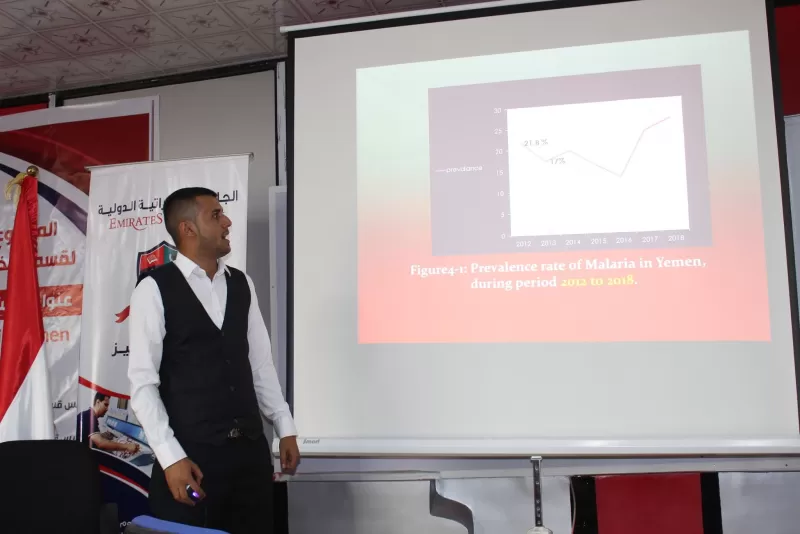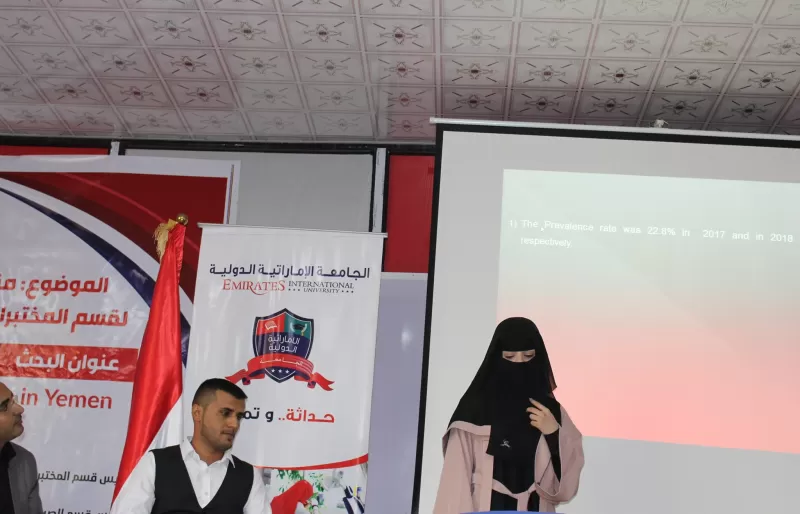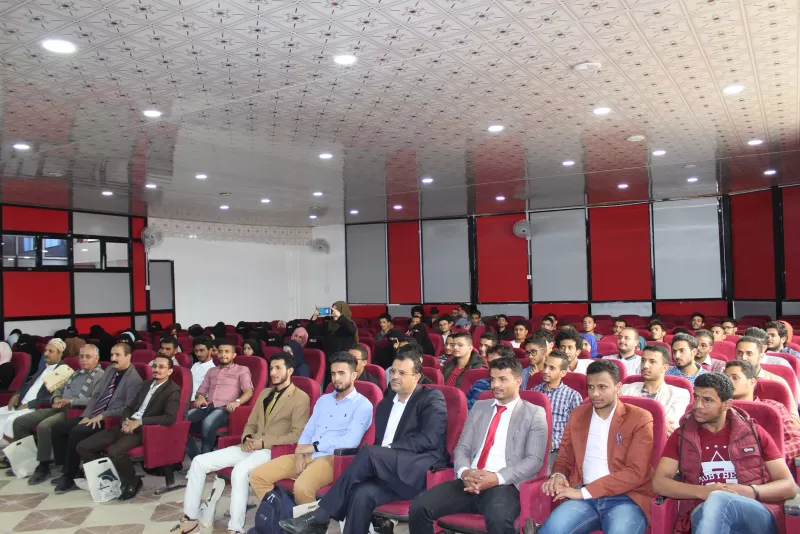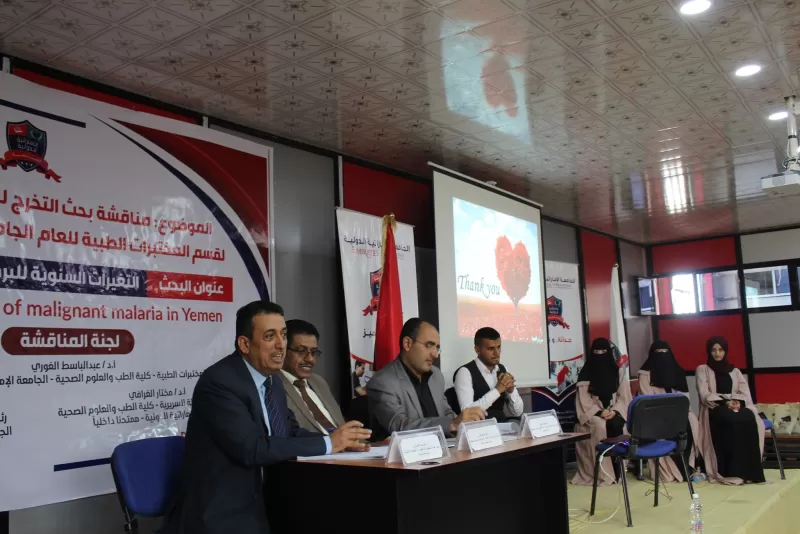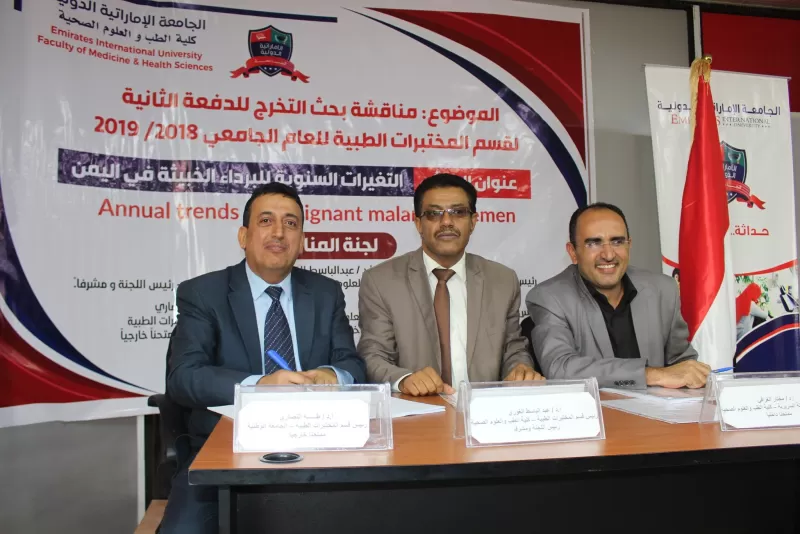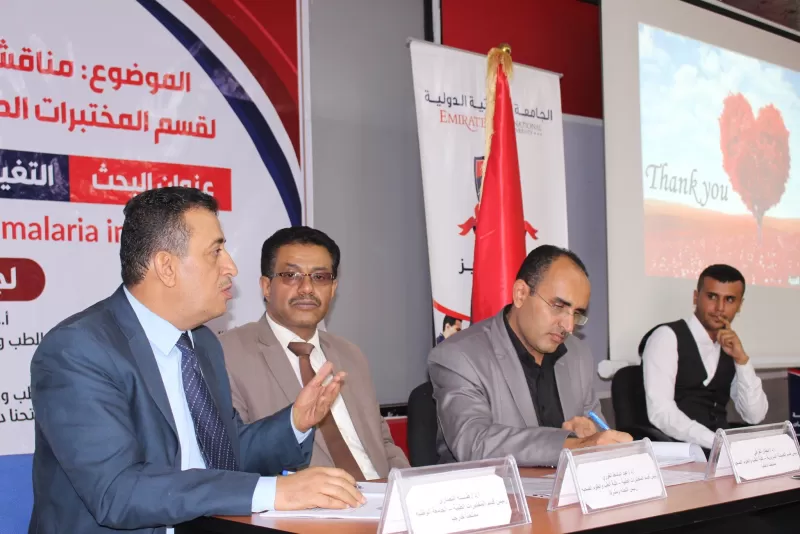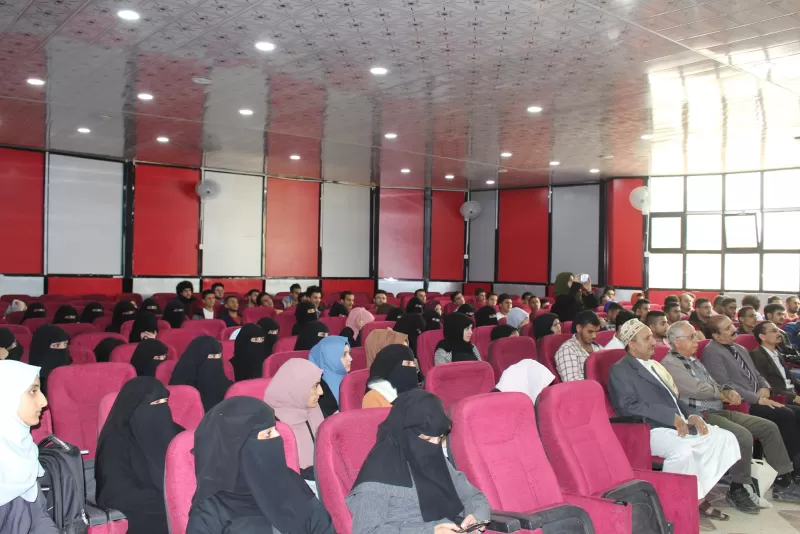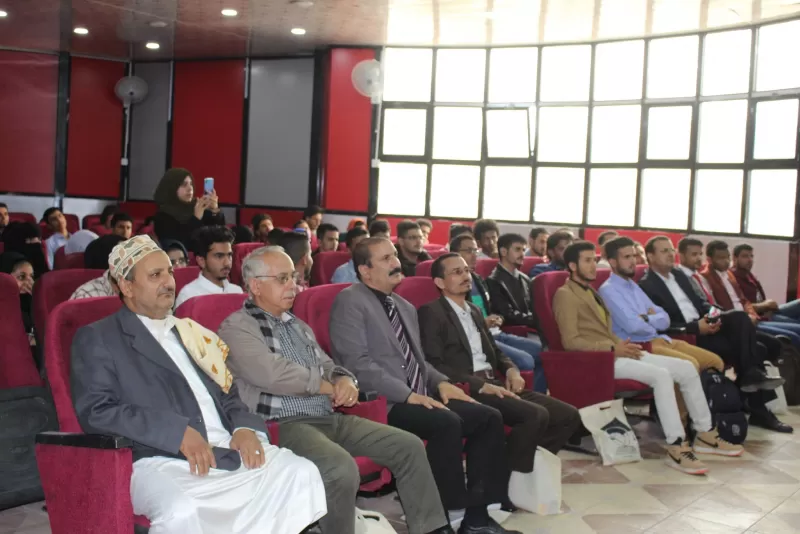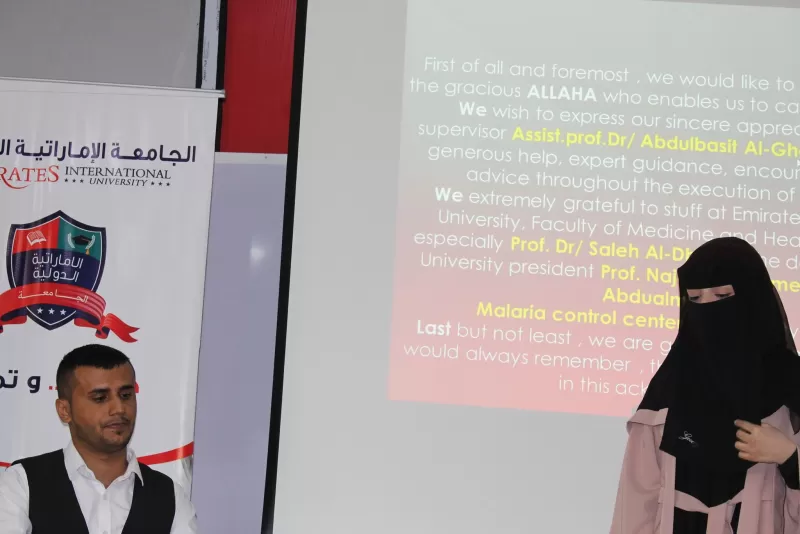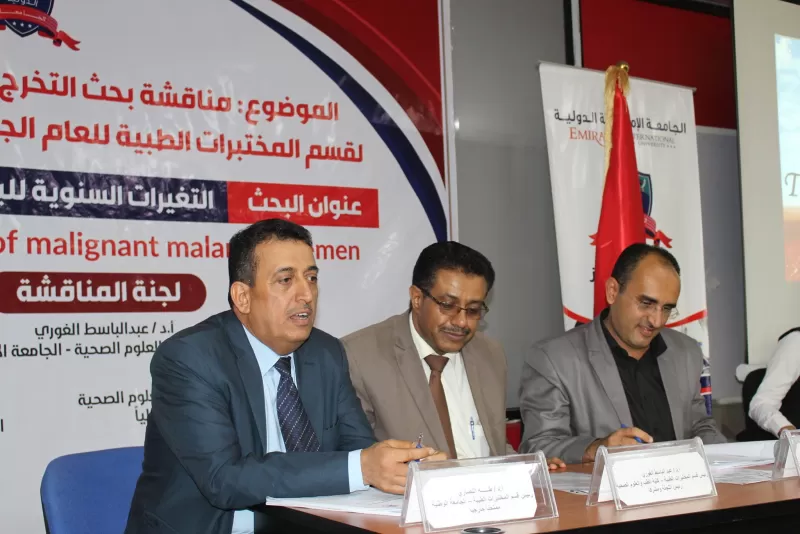Emirates International University
Modernity
Distinguish
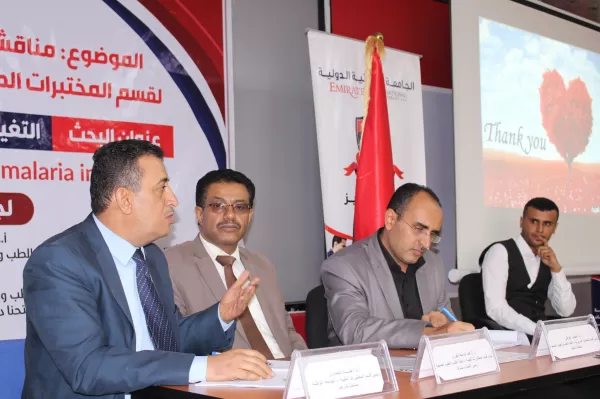
Discussion of the graduation research of the second batch of the Department of Medical Laboratories, Faculty of Medicine and Health Sciences at the university
University media
This morning, Wednesday, the second batch of graduation research from the Department of Medical Laboratories, College of Medicine and Health Sciences at the Emirates University, entitled "Annual changes to the malignant disease in Yemen", was discussed. Annual trends of malignant malaria in Yemen. The discussion committee consisted of: Prof. Dr. Abdelbaset Al-Ghouri, Head of the Medical Laboratories Department, College of Medicine and Health Sciences, Emirates International University, Chairman and Supervisor, Prof. Mukhtar Al-Gharibi, Head of Clinical Pharmacy Department, Faculty of Medicine and Health Sciences, Emirates International University, as an internal examiner, and Prof. Taha Al-Nasari, President Department of Medical Laboratories National University external examiner. The discussion was attended by the Dean of the College of Medicine and Health Sciences, Prof. Dr. Saleh Al Dhaheri, and Prof. Hafez Al-Noud, Professor of Hematology at the Faculty of Medicine in Sana’a, in addition to the assistant faculty members of the Faculty of Medicine and Health Sciences at the Emirates International University, as well as a number of students from various departments of the Faculty of Medicine, as well as the students’ parents graduates. The aim of the research is to determine the prevalence of the disease in Yemen from 2012/2018, as well as to determine the risk factors for this disease, as well as the goal of evaluating clinical diagnostic methods for infection or disease in Yemen. The research reached valuable results, as the increase in the prevalence of the disease at this stage was clarified, and the risk factors and age groups were identified. The research also found that the diagnostic methods for infection or disease were microscopic examination the ideal method, followed by immunological and molecular analyzes in addition to clinical examination. Moreover, the discussion was enriched by the examination committee, due to the importance of the research that dealt with a major health problem in Yemen and in the Arab region in general. At the end of the discussion, the committee recommended benefiting from this research, especially the rest of the payment in various departments and specializations.

